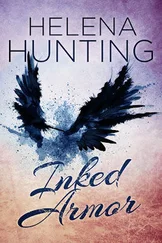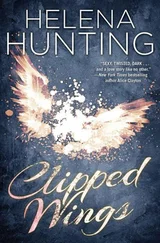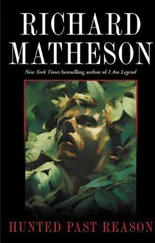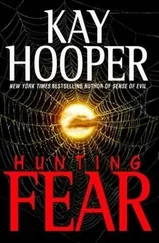*
Morri and I took a long boat ride on Saturday morning to the colonial town of Roslyn, at the bottom of a slender inlet on the northern shore of Long Island. On our first afternoon there we took a walk through the woods, up a rather steep hill and far into a desolate distance of leafless trees. It was as cold as I’d ever known it, and I felt as though I were walking through an old landscape that had frozen inside me. I expected to see Violeta’s body on the ground, as she had been after her uncle’s attack.
Morri walked faster than I and would often wait for me to catch up. It pleased me the way she looked back for me.
On Monday, sometime before dawn, the snow began to fall. It was the first snow that Morri had ever seen. Dashing outside, she promptly fell on her bottom, bruised but laughing. I sat down beside her. Tilting my head back, I watched the flakes falling, feeling their tickling chill on my cheeks. She and I lay together for a long time, letting ourselves be covered.
*
We got back to Violeta’s home early Monday evening, as Morri had the day off from school. She met us at the door with kind words and kisses, offering to make us hot coffee and rabanadas as a treat. I could not bear her generosity and rushed back out of the house. By late the next afternoon, having passed the night in a decrepit boardinghouse overlooking the Hudson, I’d found a small three-bedroom house in Greenwich Village that I could begin leasing in a week. It was old and plain, and the garden was nothing but frozen mud and filth, but its walls were sound enough to the taps of my fist and it was not expensive.
When I informed Violeta of my intentions, she gave me an encouraging smile and said, “I ask you only that you keep your studio here. So that we might remain friends. Do me that one favor, John.”
For the first time in my life I said no to her. A single word had never come harder to me.
*
I wrote immediately to Mother to tell her of my new home, and I changed the address in my newspaper appeals. On my last night at Violeta’s house, she slipped out to her garden before dawn. Gazing up at the stars, contoured by moonlight, she seemed again that nymph of the night I’d previously imagined. When she spotted me, I stepped back into the shadows like a criminal. She began tossing a ball up in the air. It was Fanny’s. In my mind, I could see my beloved dog jumping for it and barking. I stumbled back to bed. A little while later, I heard the sound of pebbles being tossed at my window. I covered my head with my pillow. When finally I removed it some minutes later, she was still tossing her stones. She continued until sunrise, but I dared not go to her.
*
One morning in mid-January there came a thunderous pounding at the door of our new home on Waverly Place. Running to answer it, I found my mother raising her hands to her mouth, already in tears. Behind her were Esther and Graça. At least a score of stuffed bags were being unloaded from three large carriages.
Our reunion was somewhat hysterical, as they always are in my family. It was rather like a mad Italian opera played at too fast a tempo, with four characters of wildly different temperaments searching for an equilibrium lost somewhere between tears and laughter. I kissed my children all over and took turns holding them.
The girls were wearing the filigree earrings I’d purchased in Alexandria and told me with pride that they hadn’t taken them off in weeks and had no intention of doing so for many more. On touring our house, I told them that they would have to share a bedroom, but they claimed that it was better that way, since they always slept more soundly when together at night. Like Morri, Mama had her own room and pronounced it perfectly charming, though it contained not a single piece of furniture or even a rug. Conditions were obviously very cramped and modest, and despite their smiles I suspected that they found it depressing after so long a journey. When I showed them how I’d encamped in what had been the pantry, in preparation for their arrival, I could feel my courage tiptoeing away from me.
“Just keep breathing,” Mama told me. But I could not laugh. She tapped my forehead as though to knock some sense into me. “Stop worrying, John,” she said, plainly intending it as a command. “We’ve all faced much worse than a bit of crowding and dust in our lives, even Graça and Esther.”
*
I took my children and my mother on separate walks down Broadway over the next two days, as in the light and air I could talk more freely of the loss of my arm and my experiences at River Bend. I apologized immediately to Mama for losing my arm, since I had come out of her complete and it seemed an affront to both her pain of childbirth and years of care. She hushed me up and kept saying, “You ought to have told me much sooner, you know. You needn’t always suffer alone. You’ve been doing that since you were a tiny lad, and I think it’s about time you stopped.”
I kept reassuring her that my difficulties had long passed. But she could not reconcile the image of her son in her mind with the man before her. In the early morning, while still half-asleep, I sometimes caught her standing in my doorway, watching me with troubled eyes.
Mama has always been a creature of unexpected moods, and after this initial period of disbelief and sorrow, she turned playful with me once more. Though this in itself was a heartening relief, I knew it would take many more months for her to be able to look at me without comparing me with what I’d been.
Each of my daughters reacted differently to the loss of my arm. Graça, ever thoughtful, was given to wary silence on the subject, until I realized in a moment of revelation that she was awaiting reassurance that I was much the same man I had always been. I had forgotten my own lesson from childhood, that separation was more difficult for the young. So it was that for a fortnight I doted on her from morning till bedtime, reading to her for an hour or more each night after tucking her in. When she lost her cautious manner with me, when she could pass a day exploring the city with my mother without even remembering my existence, I knew she would be fine.
Esther decided to play nurse at this late date, and for a time I suffered with good humor her helping me down the stairs and fluffing my pillows in bed. Then it began to irritate me, and I once made her cry with my blustering. It was Mama who told me that the girl was not so different from her sister as I thought, and that she was calling for my reassurance in the way most suited to her own character. So I allowed myself to be pampered by her for several more weeks and asked only in return that she let me listen to her practice her violin. This pleased her so much that she even became my morning reveille, serenading me awake each morning with minuets and gavottes by Bach. I knew she was well when she began to snap at me occasionally without worrying that I might go away again or that another limb of mine might just drop off.
*
Relations between my family and Morri were awkward at first, as I might have expected. Her solution was to withdraw deep into the protective solitude of her upstairs bedroom when she was not teaching. One afternoon, when I dared to knock and step inside, she cried in my arms. She was sure the others all hated her. “I’m so different from them. You’ve been so kind, but it’s a mistake my being here.”
Mama entered the room then, having heard the commotion, and knelt by Morri, who sat up in alarm. She held the girl’s shoulders. “Morri, now listen to me. Your papa was the truest friend I ever had. He saved John’s life, as you may know, and he therefore saved mine.” She dabbed at the girl’s tears with her handkerchief. “At that time I made a pledge to him — that I’d always treat him as though we were kin. So it was not John’s adoption of you that brought you into our family.” She kissed each of her hands and made them into fists. “You, my child” — she smiled — “were part of my family before you were even born!”
Читать дальше












